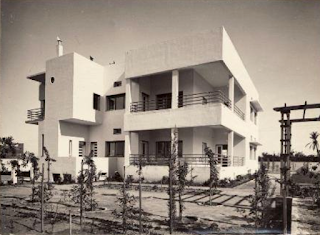 |
| Aref Dajani |
I grew up in the United States with a name that is difficult to pronounce with no English cognate. Anyone with a name that Is difficult to pronounce gets made fun of (at best) because of their name. Many change their name. I never wanted to, because I learned at a young age that my name is a lifeline to my identity. I was taught that I had a great-grandfather named Aref, a grandmother named Arefiyya, and an uncle named Aref. I was the fourth generation of Arefs!
Though Orientalists and Hollywood have their stereotypical ideas of what a Muslim, an Arab, or a Palestinian looks like, we come in every shape, size, hair color, and skin complexion. I grew up in a Jewish neighborhood within walking distance of a Conservative shul (Yiddish for synagogue). I met my first survivor of the Shoah (Hebrew for Holocaust) at the age of five. He was the father of my best friend Mark and had blue numbers tattooed on his wrist.
I heard his story from the Shoah and I heard my father’s story from the Nakba. I learned at a very young age how important it is to listen, learn, and accept the truth of others. I also learned not to trust stories that people have of The Other. I heard what many Muslims, Arabs, and Palestinians said about Jews. They were wrong because I heard the stories of Jews first-hand. I heard what many Jews and pro-Israelis said about Palestinians. They were wrong because I heard the stories of Palestinians first-hand.
There is no substitute to first-person narrative, period. That is why Green Olive Tours is such an amazing organization.
Fast forward decades. The Internet becomes a thing and I learned to egosurf. I Googled on myself, though I used Altavista back then. Put in “Aref Dajani” or “Dajani, Aref” in the search bar and you get exactly two people in the world: me and a former mayor of Jerusalem.
 |
| Dajani Hospital, Jaffa – 1933 |
I knew that I was son of Nader, son of Shafiq, son of Aref. Was the former mayor my great-grandfather? The Dajani family has two branches – Jaffa and Jerusalem — and I come from the Jaffa branch. There is a gulf between Jaffa and Jerusalem historically and culturally, yet my dad went to an Anglican high school in Nabi Dawud (the City of David) on Mount Zion. He was a member of the Dajani soccer club in Nabi Dawud. And a Jerusalemite Dajani established the Dajani Hospital in Jaffa.
Courtesy of a cousin who developed an online pan-Dajani family tree, I learned that my great-grandfather had the same name as and lived contemporaneously with, but was not, the former mayor of Jerusalem. All good; I am the son of orange growers. I am a Jaffa Dajani.
Reading online and speaking with relatives on both sides of the family, I learned much about the former mayor of Jerusalem. It is often asserted that Palestinians did not establish their own national identity until long after Jews established their own national identity. That is patently false. Both Jews and Palestinians established their national identities within the same artificial borders set forth by a certain Sykes and a certain Picot. Folks conveniently forget that Herzl advocated for Jews to settle in Uganda.
 |
| Mayor Aref Basha al-Dajani |
The land called Historic Palestine or Eretz Yisrael was twice promised in WWI by the British: as a nation state for the Arabs and as a nation state for the Jews. Both fought against the Ottomans for independence. The Balfour Declaration promised a homeland for the Jews and nothing for the Palestinians. As a result, Mayor Dajani worked with the leading houses of British-defined Palestine to undo Sykes-Picot and unite the Levant. We had a serious problem with European Jews who acted colonial in every way, setting up their own institutions and purchasing our land. We had zero problem with our Arab Jewish neighbors. At the same time, we were not nameless, faceless Arabs, interchangeable with Mauritanians, Somalis, or Omanis. Our kinship was with what Sykes-Picot called Syria, Lebanon, and Transjordan: the Levant.
From its very beginning, Palestinian Arab nationalists sought to build a state where all are equal. That was reflected in the Muslim-Christian Association and the Palestine Arab Congresses. In my advocacy for a secular democratic bi-national state, I seek equality for not the three but the six Abrahamic faiths that reside between the River and the Sea: Bahá’ís, Samaritans, Druze, Muslims, Christians, and Jews. Mayor Dajani brought together Muslims and Christians to unite the Greater Levant. That tradition continues three generations later. Post-peace, I advocate for a confederation that breaks down the hardened borders of the Levant to the benefit of all.
__________
Aref Dajani is the author of the peace initiative “Four Days to Heal Khalil”

Comment (0)